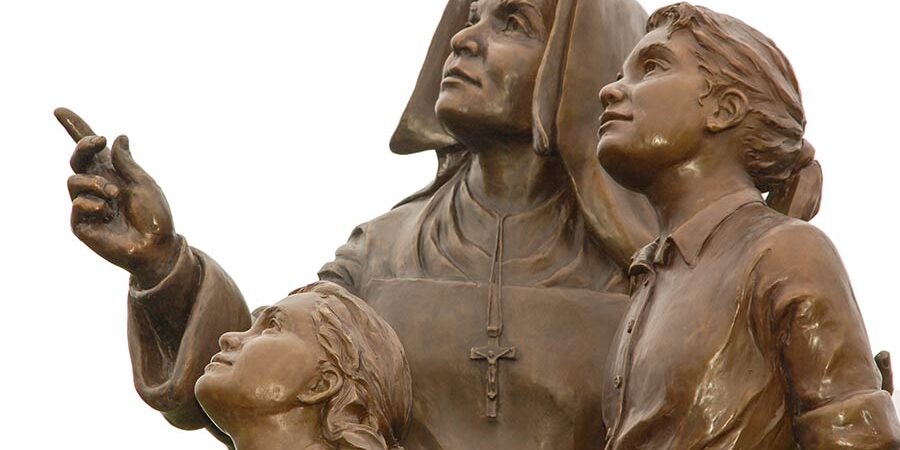Sunday, March 27, 2022: Fourth Sunday of Lent
Gospel – Luke 15:1-3, 11-32
Tax collectors and sinners were all drawing near to listen to Jesus, but the Pharisees and scribes began to complain, saying, “This man welcomes sinners and eats with them.”
So to them, Jesus addressed this parable:
“A man had two sons, and the younger son said to his father, ‘Father give me the share of your estate that should come to me.’ So the father divided the property between them. After a few days, the younger son collected all his belongings and set off to a distant country where he squandered his inheritance on a life of dissipation. When he had freely spent everything, a severe famine struck that country, and he found himself in dire need. So he hired himself out to one of the local citizens who sent him to his farm to tend the swine. And he longed to eat his fill of the pods on which the swine fed, but nobody gave him any. Coming to his senses he thought, ‘How many of my father’s hired workers have more than enough food to eat, but here am I, dying from hunger. I shall get up and go to my father and I shall say to him, “Father, I have sinned against heaven and against you. I no longer deserve to be called your son; treat me as you would treat one of your hired workers.’” So he got up and went back to his father.
While he was still a long way off, his father caught sight of him and was filled with compassion. He ran to his son, embraced him and kissed him. His son said to him, ‘Father, I have sinned against heaven and against you; I no longer deserve to be called your son.’ But his father ordered his servants, ‘Quickly bring the finest robe and put it on him; put a ring on his finger and sandals on his feet. Take the fattened calf and slaughter it. Then let us celebrate with a feast, because this son of mine was dead and has come to life again; he was lost, and has been found.’ Then the celebration began.
Now the older son had been out in the field and, on his way back, as he neared the house, he heard the sound of music and dancing. He called one of the servants and asked what this might mean. The servant said to him, ‘Your brother has returned and your father has slaughtered the fattened calf because he has him back safe and sound.’
He became angry, and when he refused to enter the house, his father came out and pleaded with him. He said to his father in reply, ‘Look, all these years later I served you and not once did I disobey your orders; yet you never gave me even a young goat to feast on with my friends. But when your son returns who swallowed up your property with prostitutes, for him, you slaughter the fattened calf.’ He said to him, ‘My son, you are here with me always; everything I have is yours. But now we must celebrate and rejoice, because your brother was dead and has come to life again; he was lost and has been found.’”

Reflection
Which of the figures in the story do you most relate to: The father, the prodigal son, or the eldest son? For most of us – and certainly for me – it’s the eldest son that resonates. Yet Henri Nouwen, in his book The Return of the Prodigal Son posits that the eldest son’s fate is the most dire, because he utterly rejects joy. Although he is called to join the festivities and enter the light, the eldest son refuses. Will he come around? Will he acknowledge his own lostness? God invites all of us into the feast, into the light. Can we let go of our own resentment long enough to open the door? What we know for certain is this: God is always waiting for us to come home.
Action
When the prodigal son demands his inheritance, he is effectively telling his father he wishes his father were dead. He utterly rejects his parent in this moment. Think of a relationship that you have allowed to die (or wither). What were the circumstances surrounding the break? If you allowed a relationship to grow weak purely out of neglect, take the time today to write a letter or email or make a phone call to this person. Remind them that they always have a home in your heart.

